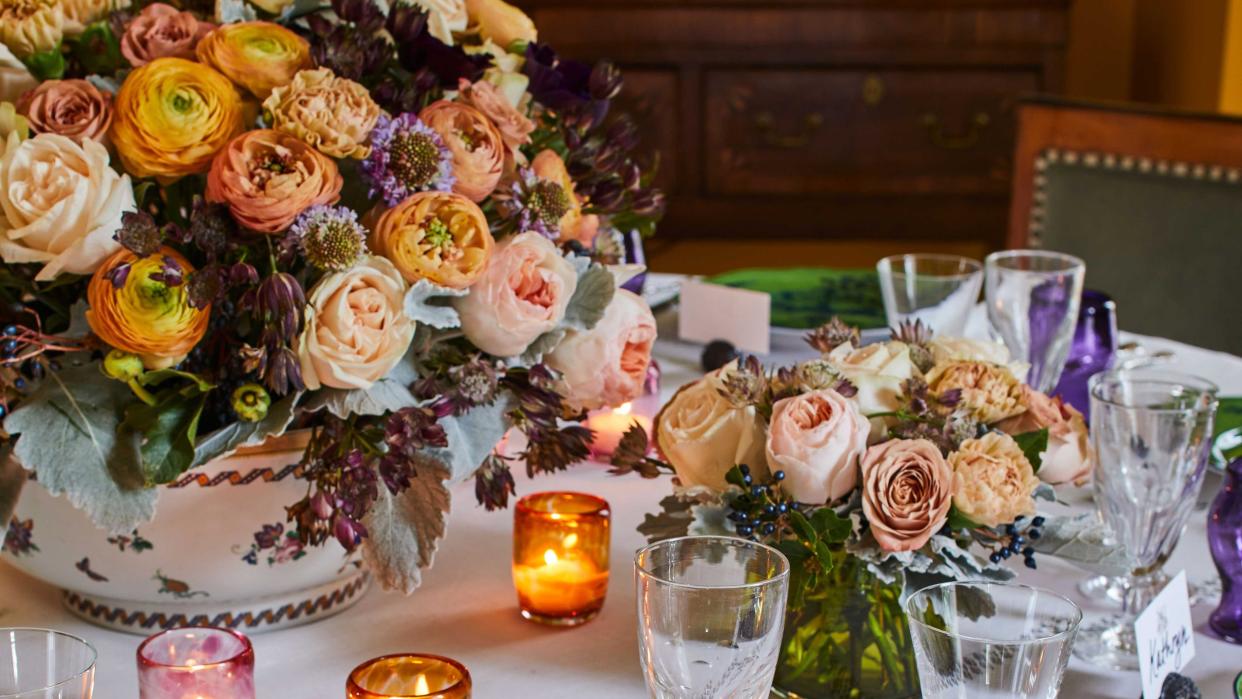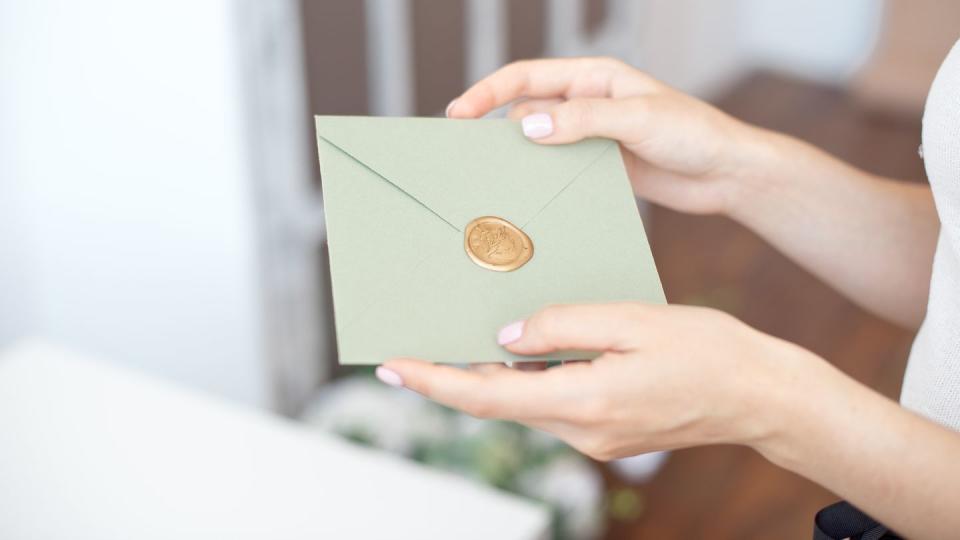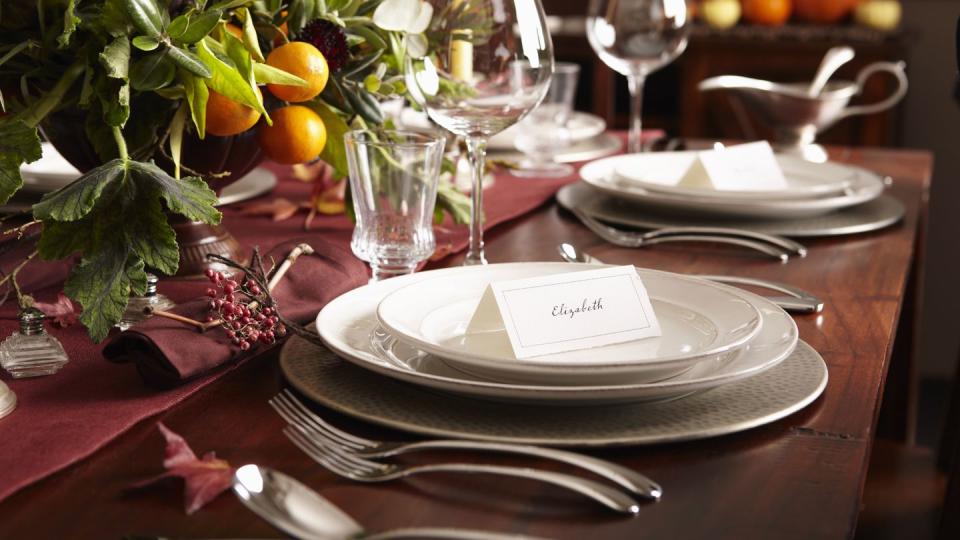5 Rude Things You Could Be Doing at a Dinner Party, According to Etiquette Experts

Now more than ever, people are forgoing lavish nights out and embracing the intimacy of a dinner party at home. There's nothing that brings friends and family closer together than an unforgettable gathering filled with delectable food, divine wine, and plenty of conversation. However, nothing ruins a night quicker than someone being inconsiderate to the host and other guests around them.
As a refresher on dinner party etiquette, we spoke with Leontine Linens founder Jane Scott Hodges and Common Courtesy cofounder Christin Gomes to learn their advice on how to be a gracious guest. Here, the five unexpectedly rude things you may be doing at a dinner party—and how to correct them.

Not thoroughly reading the invitation.
It's thrilling to receive an invitation for a dinner party in the mail (or even via text)—but don't let the excitement distract you from thoroughly reading it. A gracious host will lay out everything pertinent to the party—from the theme and dress code to the time and location—on the invitation. It's important to ask any questions that arise before RSVPing; the last thing you want to do is bombard the host with a million questions the day of the soiree.
Gomes notes that it's important to check the invitation to see whether or not you can bring a plus one or family members. Gomes says, "The host makes accommodations for invited guests only, you wouldn’t want to invite an unexpected guest unless the host informed you otherwise."
Keep in mind that dinner parties entail extensive planning and preparation, so it's crucial to RSVP by the stipulated date on the invitation. When confirming your attendance, consider asking them if they need any help in advance setting up or need you to bring something.
Arriving fashionably late—or too early.
Guests should plan to arrive at the time stated on the invitation when it comes to dinner parties. Although arriving "fashionably late" is often perceived as socially acceptable, Gomes says that for smaller gatherings, punctuality is both courteous and less disruptive to the evening's flow.
"Dinner parties are typically intimate and running late can completely throw the host off the schedule," says Gomes. "It also might cause other guests to be waiting to eat until you arrive."
If it appears that you will be over 15 minutes late, you should let the host know and understand that the dinner may start without you.
Hodges adds that you should not arrive earlier than what's listed on the invitation. The host or hostess may still be finalizing preparations for the party, and an early arrival could potentially make them feel rushed. Hodges explains that arriving early is only acceptable if the host has specifically requested it.
"I think that time is a courtesy that is free," says Hodges. "Being on time is just a gift to not only yourself but whoever is hosting you."

Moving the place cards or ignoring the seating chart.
The host may opt to create a seating chart to help guests feel more at ease when finding their spots at a more formal dinner party. If this is the case, it's important to respect the seating chart as the host most likely put a lot of time and thought into organizing it. The way they've placed everyone tends to spark new friendships and keep the conversation flowing all night long. Plus, Hodges notes that these seating charts can encourage mingling with more than just your table buddy during the cocktail hour.
Hodges explains, "If there's something laid out for people to see who they're sitting with, before the seated dinner, then it gives them a ripe opportunity to talk to other people that they're not going to be seated before the dinner officially starts."
With that being said, you might want to avoid moving a place card before dinner starts. It could mix things up and unintentionally upset the host. If there's an issue with the seating, just ask the host in a friendly (and respectable) way if you could swap places with someone else. They'll likely understand.
Putting a cloth napkin on a dinner plate.
When you spot new linen napkins at the table, you might feel a bit cautious about using them too liberally, worrying about making them too dirty. However, Hodges playfully remarks that napkins are there for a reason, adding in a light-hearted way, "If they have a stain on them, that means they you had a good time." But there's a golden rule Hodges encourages everyone to follow with table linens—it makes tidying up so much smoother!
"Don't ever put your napkin on your plate—there's food on it," says Hodges. "You can put it on the side of your plate or the table, but don't put it on the plate."

Skipping a host gift.
Hostess gifts are a thoughtful way to express your gratitude for an amazing evening—but there needs to be more thought put into what you give. While the gift doesn't have to be extravagant, it should speak to the hostess's personality and taste.
Gomes says, "It’s always nice to bring a small hostess gift as a thank you to the host for inviting you to their event. Although it’s usually easy to grab a bottle of wine as a gift, try to make the gift personal. Does the host like candles or plants? Find something small that shows thought and consideration."
Meanwhile, Hodges often tells guests to skip purchasing a gift and give something more personal like a note or handpicked floral bouquet. Hodges says, "I think a note is a beautiful way to say thank you. I think there are things you can do as a gesture, but I hate for people to think they have to rush out and pick something out because I invited them to my home."
You Might Also Like

